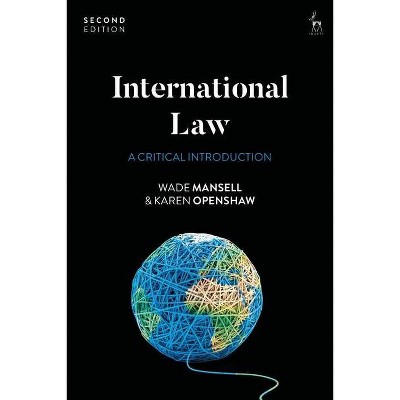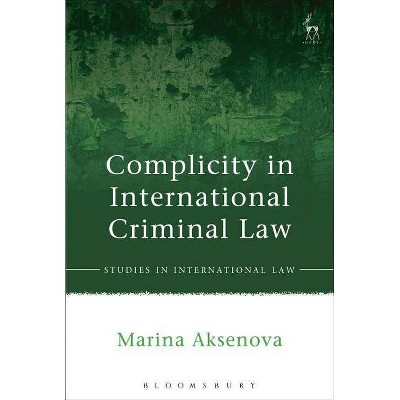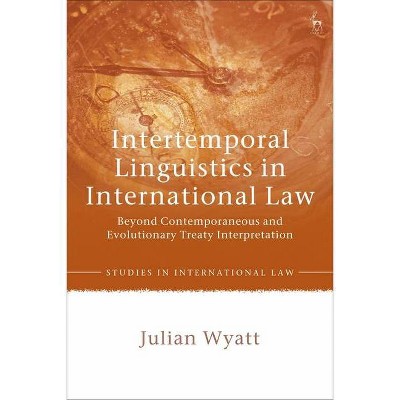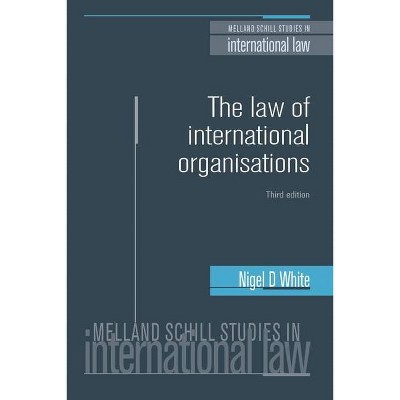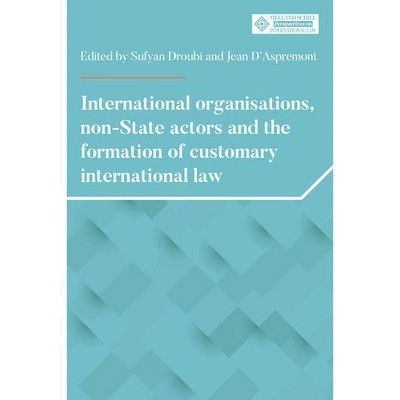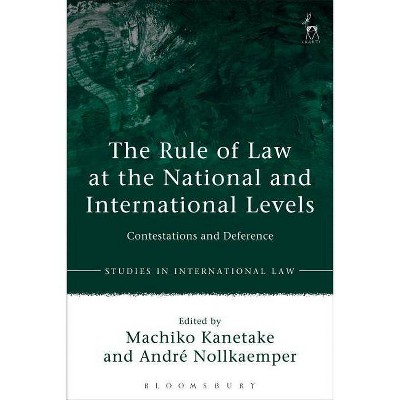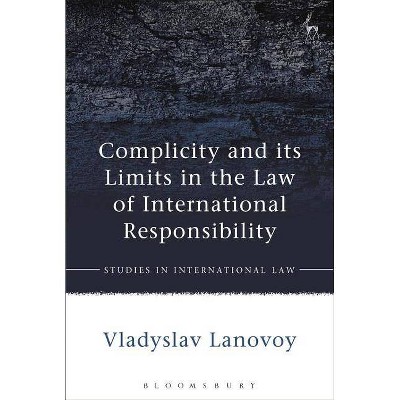The New Terrain of International Law - by Karen J Alter (Paperback)
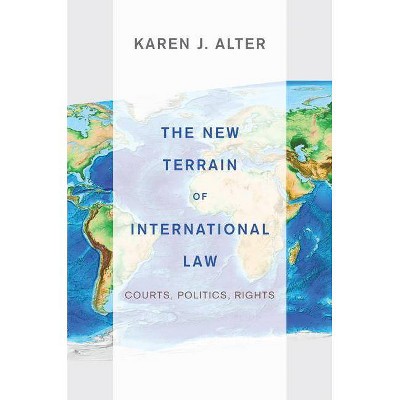
Similar Products
Products of same category from the store
AllProduct info
<p/><br></br><p><b> About the Book </b></p></br></br>"In 1989, when the Cold War ended, there were six permanent international courts. Today there are more than two dozen that have collectively issued over thirty-seven thousand binding legal rulings. The New Terrain of International Law charts the developments and trends in the creation and role of international courts, and explains how the delegation of authority to international judicial institutions influences global and domestic politics.The New Terrain of International Law presents an in-depth look at the scope and powers of international courts operating around the world. Focusing on dispute resolution, enforcement, administrative review, and constitutional review, Karen Alter argues that international courts alter politics by providing legal, symbolic, and leverage resources that shift the political balance in favor of domestic and international actors who prefer policies more consistent with international law objectives. International courts name violations of the law and perhaps specify remedies. Alter explains how this limited power--the power to speak the law--translates into political influence, and she considers eighteen case studies, showing how international courts change state behavior. The case studies, spanning issue areas and regions of the world, collectively elucidate the political factors that often intervene to limit whether or not international courts are invoked and whether international judges dare to demand significant changes in state practices"--<p/><br></br><p><b> Book Synopsis </b></p></br></br><p><b>A compelling new look at the role of today's international courts</b> <p/>In 1989, when the Cold War ended, there were six permanent international courts. Today there are more than two dozen that have collectively issued over thirty-seven thousand binding legal rulings. <i>The New Terrain of International Law</i> charts the developments and trends in the creation and role of international courts, and explains how the delegation of authority to international judicial institutions influences global and domestic politics. <p/><i>The New Terrain of International Law</i> presents an in-depth look at the scope and powers of international courts operating around the world. Focusing on dispute resolution, enforcement, administrative review, and constitutional review, Karen Alter argues that international courts alter politics by providing legal, symbolic, and leverage resources that shift the political balance in favor of domestic and international actors who prefer policies more consistent with international law objectives. International courts name violations of the law and perhaps specify remedies. Alter explains how this limited power--the power to speak the law--translates into political influence, and she considers eighteen case studies, showing how international courts change state behavior. The case studies, spanning issue areas and regions of the world, collectively elucidate the political factors that often intervene to limit whether or not international courts are invoked and whether international judges dare to demand significant changes in state practices.</p><p/><br></br><p><b> From the Back Cover </b></p></br></br><p>"<i>The New Terrain of International Law</i> provides the most sophisticated account of how 'new style' international courts alter politics by reducing the monopoly power of governments to determine what the law requires. If you can read only one book on how international courts affect the politics of international law, this is the one to read."<b>--Robert O. Keohane, Princeton University</b></p><p>"This book gives a definitive account of the growing significance of international courts in global affairs. While the European Court of Justice has been considered the gold standard of supranational courts, Alter demonstrates the breadth of supranational courts spread across the globe. Showing how litigation before international courts can be a powerful tool, her book holds central policy implications."<b>--Thomas Risse, Freie Universität Berlin, Germany</b></p><p>"International lawyers dislike having political scientists in their professional kitchen and political scientists often cannot conceal their disdain of 'naive' lawyers. Alter's carefully researched and insightful new book changes all that. There is no lawyer who will not become wiser from reading it, while many a political scientist will marvel at their failure to note a seismic change in the international order. Alter's voice is unique and indispensable."<b>--J. H. H. Weiler, president of the European University Institute, Florence</b></p><p>"This book is a landmark in the history of the study of international courts and tribunals--a true game changer. Sustained by a very thorough empirical analysis, it challenges a lot of established but outdated notions of what international courts and tribunals are and what they do."<b>--Cesare Romano, Loyola Law School, Los Angeles, and codirector of the Project on International Courts and Tribunals</b></p><p>"This comprehensive study places institutions at the center of the analysis and moves away from the debate about compliance that has dominated international law scholarship in recent years. Alter builds on her work on the Andean Court of Justice to examine a wide range of international tribunals, including several in the Global South, and to show the broad array of roles that these courts play. A nuanced analysis at the intersection of international law and politics."<b>--Tom Ginsburg, University of Chicago Law School</b></p><p>"We now have almost forty-thousand judgments from more than two dozen international courts and this groundbreaking book is the first true social science effort to understand the rapid emergence of international courts and their role in global politics. Anyone even thinking about studying international courts in law, political science, or sociology will have to start here--this book sets the standard for years to come."<b>--Erik Voeten, Georgetown University</b></p><p/><br></br><p><b> Review Quotes </b></p></br></br><br>Alter's book elicits, and deserves, high praise. It is an impressive synthesis of an immense amount of new data that will provide grist for empiricists and set the standard for new work on international courts for years to come.<b>---José E. Alvarez, <i>American Journal of International Law</i></b><br><br>Honorable Mention for the 2015 Chadwick Alger Award, International Studies Association<br><br>Winner of the 2015 Certificate of Merit for a Preeminent Contribution to Creative Scholarship, American Society of International Law<br><br>Alter argues that most observers have failed to comprehend the vast number of international courts and similar adjudicatory methods leading to numerous binding judgments regarding economic disputes, human rights, and criminal law. Tracking these developments in a clear and systematic way, she concludes that there is a zone of international relations governed by the rule of law.-- "Choice"<br><br>In <i>The New Terrain of International Law: Courts, Politics, Rights</i>, Karen Alter provides the most ambitious, comprehensive, and successful analysis of this new world of international courts and the impact they have exerted on international and domestic law and politics.<b>---Mark Pollack, <i>Perspectives on Politics</i></b><br><br>This is a solid and sophisticated volume and should be on the reading list of all those who are interested in international courts and tribunals. It provides a strong account of the rapid emergence of international courts and their role in the international political and legal systems. Additionally, the book would be an appropriate read for advanced classes in political sciences and international relations.<b>---Chiara Giorgetti, <i>H-Net Reviews</i></b><br><br>This pathbreaking book illuminates a quiet revolution that has reshaped international law, and it will change many readers' views about the new global legal system. . . . She masterfully demonstrates how, as the idea of global governance takes root, governments increasingly take pains to be seen as following the law--a development that has greatly increased the power of international courts and judges.-- "Foreign Affairs"<br><br>Winner of the 2015 International Law Best Book Award, International Law Section of the International Studies Association<br><p/><br></br><p><b> About the Author </b></p></br></br><b>Karen J. Alter</b> is professor of political science and law at Northwestern University and a permanent visiting professor at the iCourts Center of Excellence, University of Copenhagen School of Law. She is the author of <i>Establishing the Supremacy of European Law</i> and <i>The European Court's Political Power</i>.
Price History
Price Archive shows prices from various stores, lets you see history and find the cheapest. There is no actual sale on the website. For all support, inquiry and suggestion messagescommunication@pricearchive.us
